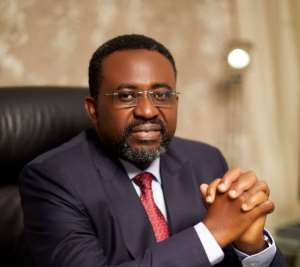 Dr. Johnson Asiamah
Dr. Johnson AsiamahThe appointment of Dr. Johnson Asiamah as Governor of the Bank of Ghana is a development that inspires both confidence and optimism. At a time when Ghana’s economy is navigating complex challenges, including inflationary pressures, exchange rate instability, and liquidity constraints – the central bank requires decisive leadership grounded in both experience and technical expertise. Dr. Asiamah’s deep institutional knowledge, combined with his practical approach to monetary policy and financial regulation, makes him a fitting choice for this critical role. His appointment signals a renewed sense of direction for Ghana’s financial sector, and I am eager to see the impact of his leadership.
One of my key expectations for Dr. Asiamah’s tenure is his approach to tackling inflation. Sustained price stability is fundamental to economic confidence, and his previous experience at the Bank of Ghana gives him the insight needed to implement effective inflation-targeting policies. His understanding of the relationship between money supply, fiscal policy, and real-sector dynamics suggests that he will take a data-driven, pragmatic approach to keeping inflation under control without stifling economic growth.
Equally important is exchange rate management. The Ghanaian cedi has faced considerable volatility in recent years, affecting businesses, importers, and households alike. Dr. Asiamah’s background in exchange rate policy and market interventions suggests that he will be proactive in ensuring currency stability. His past contributions to foreign exchange policy at the Bank of Ghana indicate that he will bring both technical skill and strategic foresight to managing external vulnerabilities.
Another critical area where I expect Dr. Asiamah to make an impact is in strengthening financial sector regulation. The banking sector has undergone significant reforms in recent years, but continued vigilance is needed to ensure stability and resilience. His experience in financial supervision and risk management positions him well to uphold regulatory discipline while fostering an environment that supports sustainable banking practices. A well-regulated financial sector is key to economic recovery, and I anticipate that his leadership will reinforce confidence in Ghana’s banking system.
What excites me most about Dr. Asiamah’s appointment is the level of confidence it has already generated among industry stakeholders. Banking executives, investors, and market analysts have responded positively, viewing his leadership as a sign of stability and competence. In financial markets, perception is often as powerful as policy, and his reputation as a capable economist and policymaker will help reassure both local and international investors. This renewed confidence is crucial for Ghana’s economic outlook, as investment decisions are often influenced by trust in monetary authorities.
Beyond macroeconomic stability, I am also keenly interested in how Dr. Asiamah will approach financial inclusion. Despite growth in Ghana’s banking sector, many small businesses and individuals remain underserved. His previous advocacy for policies that expand financial access, particularly in the digital payments space, suggests that he will work towards a more inclusive financial system. This is particularly important for supporting entrepreneurship and economic diversification.
Additionally, his role will extend to ensuring effective coordination between monetary and fiscal policy. Given Ghana’s current fiscal challenges, the relationship between the central bank and the government must be carefully managed. While the independence of the Bank of Ghana is essential, strategic engagement between monetary and fiscal authorities will be necessary to achieve overall economic stability. Dr. Asiamah’s experience in navigating these policy intersections makes me optimistic that he will maintain this delicate balance effectively.
In conclusion, my excitement about Dr. Asiamah’s appointment is rooted in his strong credentials, practical experience, and the confidence he has already instilled in financial sector players. His leadership comes at a defining moment for Ghana’s economy, and I have high expectations for his ability to steer the central bank toward stability, resilience, and inclusive growth. The challenges ahead are significant, but with his expertise and steady hand, I believe the Bank of Ghana is in capable hands. The President couldn’t have given us a more competent Governor.


